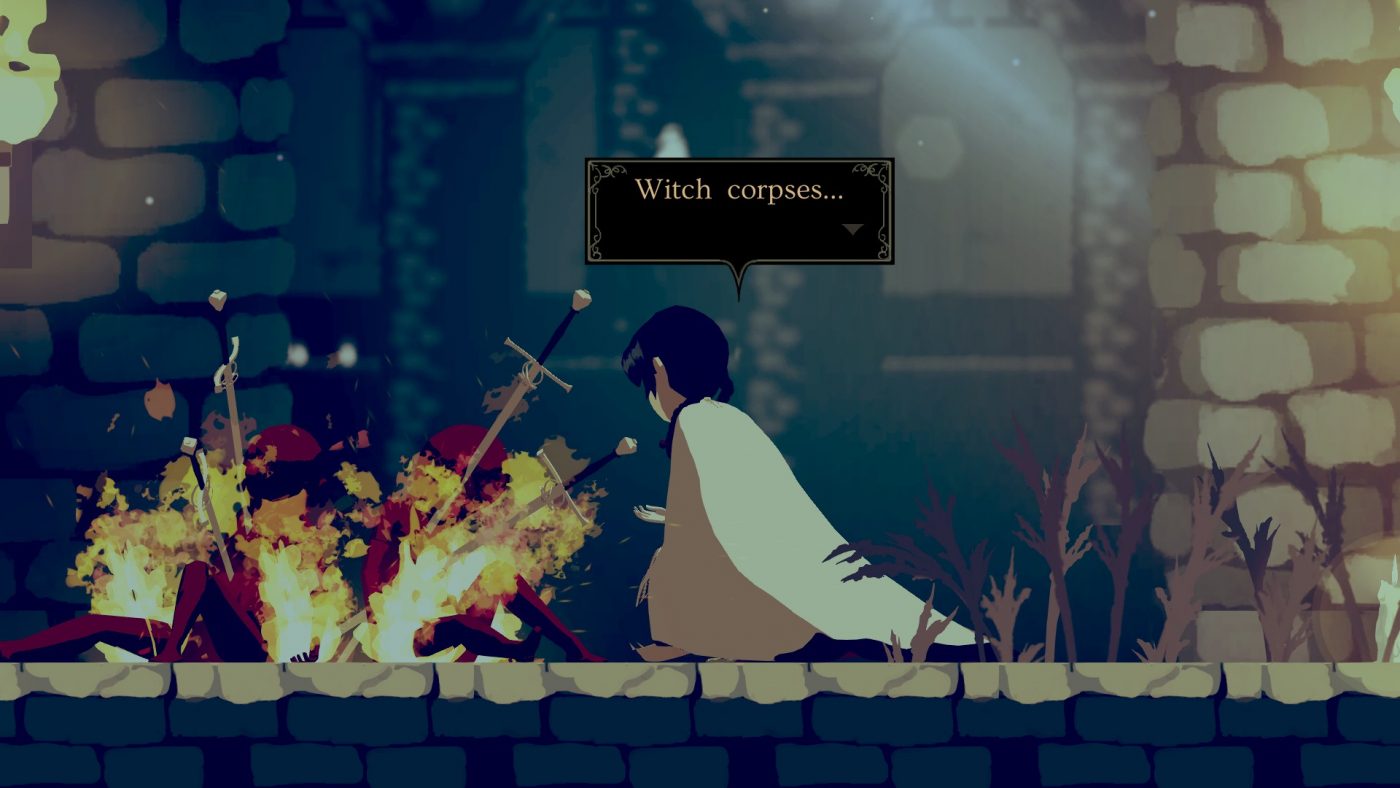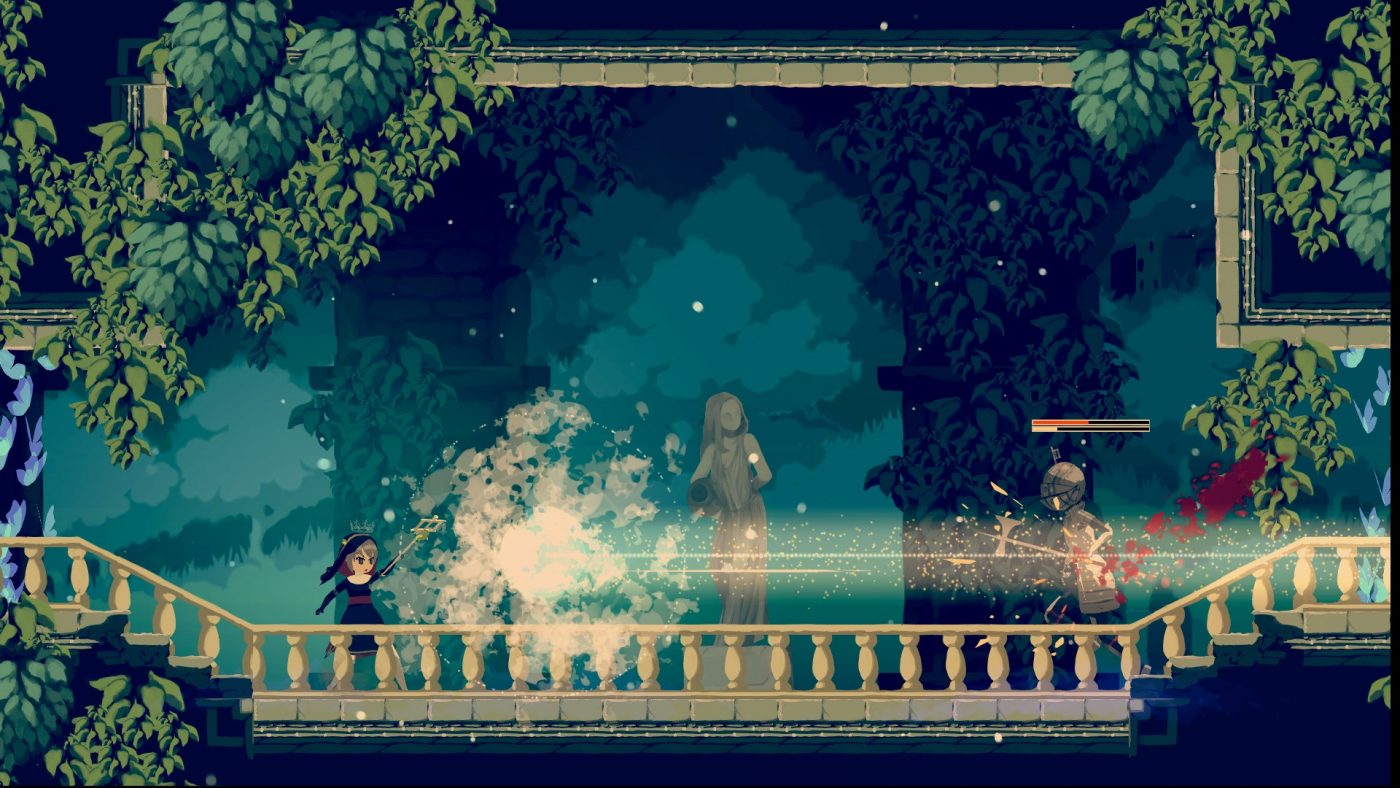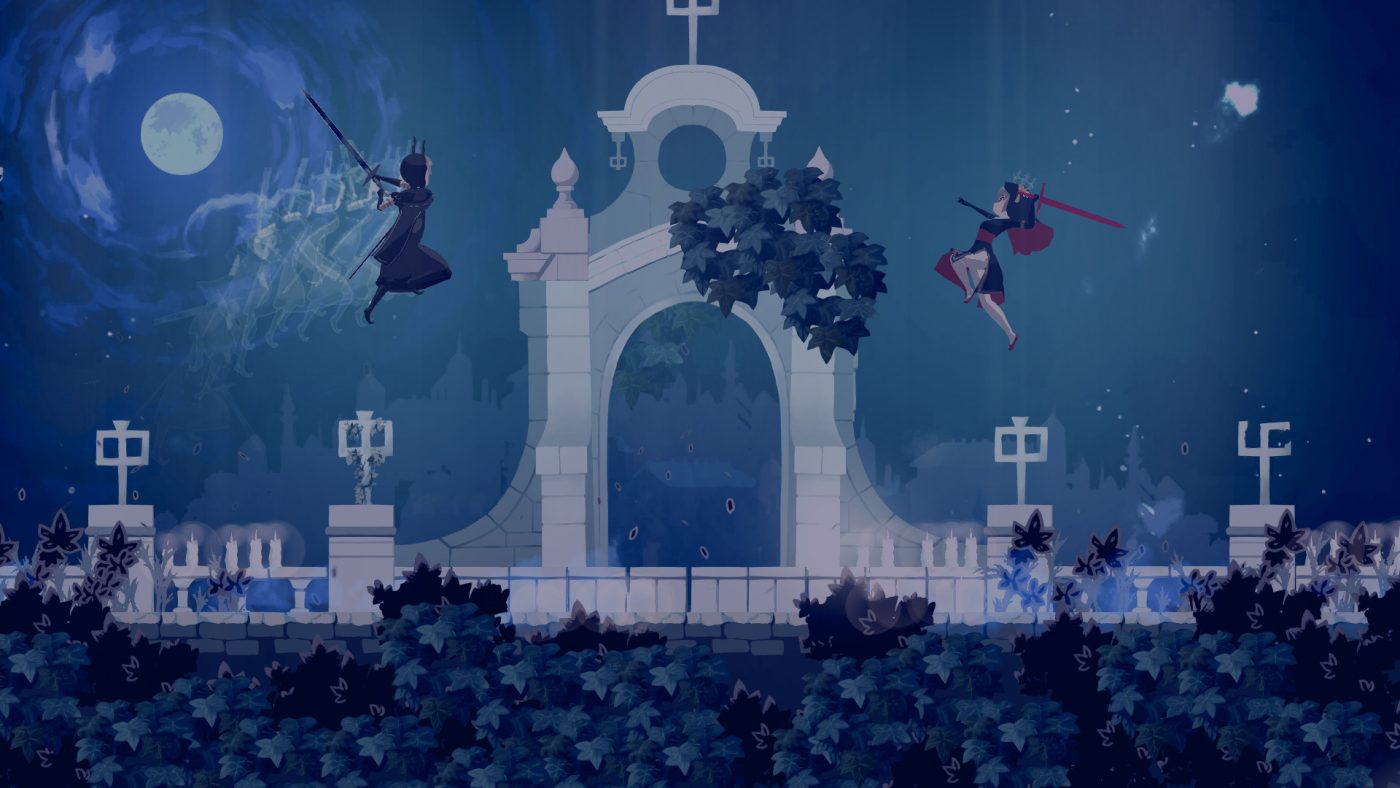A compact and atmospheric Metroidvania with satisfying combat, Minoria is a fine follow-up to the delightful Momodora: Reverie Under the Moonlight, albeit one which doesn’t take many significant steps forward. Developer Bombservice has once again crafted a moody labyrinthine map full of environmental puzzles, precision platforming and tense, challenging encounters; I just wish that it had offered a few more surprises in the six or so hours I spent with the game. It’s one I would happily recommend to genre fiends, but it falls slightly short of Reverie Under the Moonlight, let alone the likes of Hollow Knight and Bloodstained: Ritual of the Night.
Fans of Momodora will immediately be at home with its dodge-rolling, hack-and-slash combat and varied relics which bestow magic attacks and assorted perks. The formula certainly continues to satisfy. As your moveset grows, it becomes increasingly rewarding to parry, juggle and blindside a range of skeletons, witches and an assortment of malicious oddities. The parry particularly pushes my buttons, with a well-timed deflection resulting in a flurry of violence and a moment’s respite to enjoy the carnage. The combat is undoubtedly the game’s greatest strength, and the area which sees the most significant progression over its fine predecessor. Beyond that, however, I feel that each individual element shines without truly dazzling.

Momodora’s gorgeous pixel art is replaced with a 2.5D papercraft aesthetic which I find rather striking, and I admire the daring of the developers to dispense with something so tried-and-tested, and so beloved. To me, though, the new art style lacks a certain personality both in the environments and in the character animations. It feels slightly stiffer and the flatness of the textures means that Minoria doesn’t always pop quite as much as previous games, though Snakeroot Garden is gorgeous. Clearly, this is a talented and creative team, and I’d be very interested to see how they develop with more experience working in this graphical style.
Musically, it is sombre but delicate, with melancholic piano figures drifting over stirring strings. It is beautifully downbeat and gothic and it matches the visual atmosphere perfectly. While there is no individual piece here which quite reaches the weepy heights of ‘Sacred Ordalia Grove’ from Reverie Under the Moonlight, the mood is thick and affecting throughout. ‘Divine Mission’ from the St Hildreth’s Cathedral area was the highlight for me, a pocket dirge which peaks with soaring intertwined violins and then slowly dissipates into a fog of choral textures. I’ve very much enjoyed listening to the whole soundtrack over the past week or two.

There is a story here, as you take on the divine duty of slightly-under-dressed Sister Semilla to purge Ramezia of fan-service witches with your trusty sword. There’s a fairly significant amount of flavour text and library books to read to dig deeper into the religious intrigue and the history of the kingdom, but it didn’t particularly engage me. Without spoiling anything, there were also a few mildly interesting turns along the way although I can’t say that it had any impact on my actions or choices. I’m ordinarily quite happy to pore over item descriptions but the world-building here left me pretty cold.
Mechanically, I would also suggest that the Relic system of magic attacks and passive perks became quickly bloated, with little significant variation between different items and largely redundant bonuses such as 5% damage modifiers. Another unusual quirk I discovered part-way through the game is that when you’ve used up all of a particular projectile, you can simply pause, switch it out for another and keep on casting. I couldn’t tell if this was a deliberate design choice and I decided to limit myself once I’d spoiled one mid-game boss fight. I would have much preferred fewer, more meaningful and interesting Relics – another area which I felt was a step back from Reverie.

While it may sound like I am damning the game with faint praise, Minoria is a very competent, beautifully-presented Metroidvania and I did enjoy my time with it. I also had a great time putting another couple of hours into the NG+ bonuses and ‘secret’ content which will no doubt elicit a smile from fans of the Momodora games. It just lacks a little refinement and polish, not only relative to the genre highlights but also of the developer’s previous titles. I would definitely seek out a sequel because the formula is fundamentally so satisfying but my expectations would be a touch lower.

